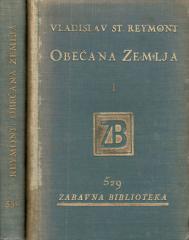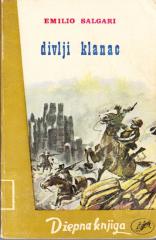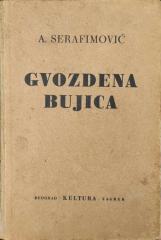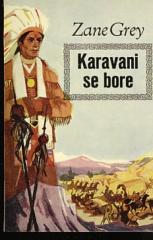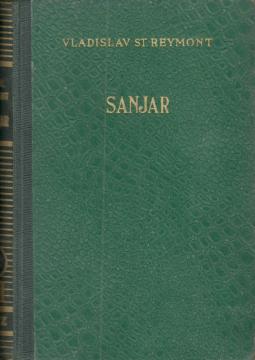
Sanjar
Roman Sanjar poljskog nobelovca Władysława Stanisława Reymonta, objavljen na hrvatskom jeziku 1944. godine, predstavlja introspektivno i filozofski obojeno djelo koje se razlikuje od njegovih poznatijih realističkih romana poput Seljaka.
U ovom djelu, Reymont se udaljava od društvenih kronika i okreće unutarnjem svijetu pojedinca, istražujući granice stvarnosti, snova i duhovnosti.
Glavni lik, čije ime nije eksplicitno navedeno, prikazan je kao sanjar – čovjek koji se povlači iz svakodnevnog života i uranja u svijet mašte, snova i unutarnjih vizija. Kroz niz simboličkih i često nadrealnih prizora, roman istražuje teme poput bijega od stvarnosti, potrage za smislom i duhovnog prosvjetljenja.
Reymont koristi bogat i poetski jezik, prožet simbolizmom i mističnim elementima, kako bi prikazao unutarnje stanje protagonista. Djelo je obilježeno introspektivnim monolozima i filozofskim razmatranjima o ljudskoj egzistenciji, stvarnosti i transcendenciji.
Sanjar se može interpretirati kao autorova refleksija o duhovnim težnjama čovjeka i njegovoj potrebi za bijegom iz ograničenja materijalnog svijeta. Roman poziva čitatelja na razmišljanje o vlastitim snovima, unutarnjim borbama i potrazi za dubljim smislom života.
Jedan primjerak je u ponudi
- Oštećen hrbat
